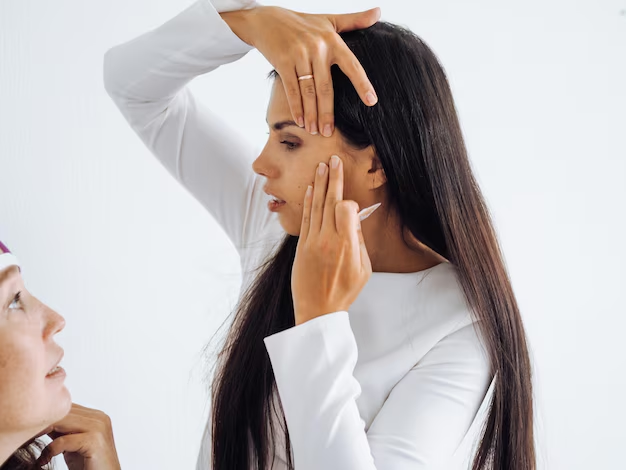Banish Cystic Acne: Your Comprehensive Guide to Clearer Skin
Cystic acne is more than just a blemish; it's a persistent and often painful condition that can affect not only your skin but also your confidence and overall well-being. If you've been battling with these stubborn cyst-like breakouts, you're not alone. Many have walked this challenging path. However, the journey to clearer, healthier skin is possible with the right strategies and understanding. Let's delve into the multifaceted world of cystic acne and explore how you can tackle it effectively.
Understanding Cystic Acne
What is Cystic Acne?
Cystic acne is the most severe form of acne. It occurs when pores in the skin become blocked, leading to infection and inflammation deep within the tissue. Unlike milder forms of acne, which manifest as whiteheads or blackheads, cystic acne appears as tender, swollen lumps beneath the skin's surface.
Causes of Cystic Acne
Understanding what triggers cystic acne can be crucial to managing it effectively. Common causes include:
- Hormonal Changes: Increased activity in the oil glands, especially during puberty, menstruation, pregnancy, or due to conditions like polycystic ovary syndrome (PCOS).
- Genetics: A family history of severe acne can increase the likelihood.
- Diet: Some studies suggest a link between certain foods, like dairy and high-glycemic-index foods, and acne outbreaks.
- Stress: Elevated stress levels can exacerbate acne.
- Skin Care Products: Certain cosmetics and soaps can clog pores, worsening acne symptoms.
Effective Strategies to Manage Cystic Acne
Bringing acne under control requires a multipronged approach tailored to your skin's unique needs. Here are some effective strategies:
Professional Treatments
Dermatologist Appointments
Consulting with a dermatologist is critical. They can:
- Diagnose: Properly identify the type of acne you're dealing with.
- Recommend Treatments: Offer prescription medications such as oral antibiotics, topical retinoids, or isotretinoin, tailored to your condition.
- Provide Advanced Therapies: Such as laser treatments, chemical peels, or drainage and extraction procedures to minimize severe cysts.
Over-the-Counter Solutions
While professional guidance is invaluable, there are also numerous over-the-counter (OTC) options:
- Benzoyl Peroxide: Reduces bacteria and inflammation.
- Salicylic Acid: Exfoliates the skin's surface and unclogs pores.
- Sulfur: Absorbs excess oil and reduces inflammation.
- Retinoids: Help prevent clogged pores.
Consistent Skin Care Routine
A disciplined skincare regime is crucial:
- Gentle Cleansing: Use a mild, non-comedogenic cleanser to wash your face twice daily.
- Moisturizing: Even oily skin needs hydration; choose an oil-free, non-comedogenic moisturizer.
- Sun Protection: Use a broad-spectrum sunscreen daily, as some acne treatments can increase sun sensitivity.
Lifestyle Adjustments and Dietary Considerations
Your daily habits and diet can play a significant role in managing cystic acne:
Nutritional Choices
- Balanced Diet: Emphasize fruits, vegetables, whole grains, and lean proteins.
- Limit Sugars and Dairy: High-glycemic foods and dairy may worsen acne in some individuals.
- Stay Hydrated: Adequate water intake supports overall skin health.
Stress Management
Stress is a known trigger for acne flare-ups, so managing it can help:
- Exercise Regularly: Physical activity reduces stress and promotes overall health.
- Mindfulness Practices: Techniques like meditation, yoga, or deep breathing can help keep stress in check.
- Adequate Sleep: Aim for 7-9 hours of quality sleep per night to boost skin recovery and manage stress.
Practical Tips for Managing Cystic Acne at Home
- Do Not Pick or Squeeze: Tampering with cysts can lead to scarring and further inflammation.
- Use Ice: Applying ice wrapped in a clean cloth can reduce swelling and pain.
- Warm Compress: Encourages drainage of the cyst naturally.
- Spot Treatments: Use targeted treatments sparingly to minimize irritation.
Empowering Yourself with Knowledge
Understanding your skin's needs, coupled with consistent care and professional guidance, puts you in control. The path to clear skin can be slow, requiring patience and persistence. Celebrate small victories along the way and be kind to yourself through this journey.
In closing, dealing with cystic acne is more than skin-deep. It involves understanding your body's signals, committing to a routine, and making informed choices. The key lies in personal empowerment through education and action—a holistic approach that can move you closer to clearer, more confident skin.
Summarizing Key Strategies for Cystic Acne Management
Here's a quick guide to keeping your approach to cystic acne both effective and manageable:
- Consult a Dermatologist 👩⚕️: Professional advice for personalized treatment.
- Choose the Right Products 📦: Look for OTC options like benzoyl peroxide and retinoids.
- Adopt a Consistent Routine 🕒: Gentle cleansing, moisturizing, and sun protection.
- Mind Your Diet 🥦: Opt for a balanced diet; limit dairy and sugars.
- Manage Stress 🧘♂️: Incorporate regular exercise, mindfulness, and ensure proper sleep.
- Use Home Remedies Wisely ❄️: Apply ice, use warm compresses, and avoid picking cysts.
Remember, managing cystic acne is a journey. Stay persistent and hopeful as you work towards healthier, clearer skin.

